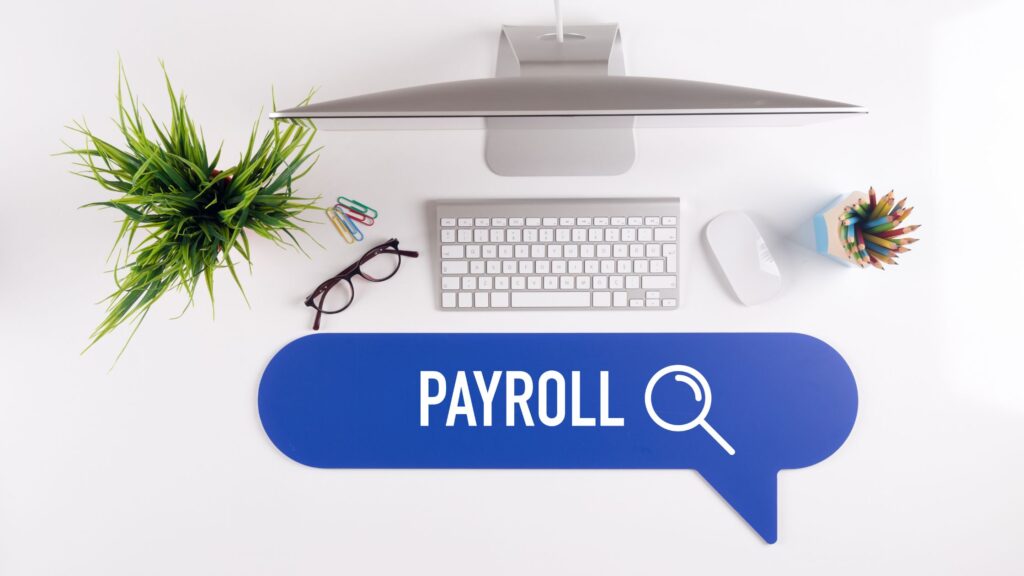
Table of Contents
ToggleIntroduction
A common payroll challenge small businesses face is compliance due to frequent changes in tax laws—accuracy as in preventing errors in data entry and data security to protect employee information. Moreover, a payroll system is essential because it involves compensating employees for work and requiring employees to calculate and distribute wages in each pay period.
Furthermore, reading the article will help you emphasize the benefits of understanding payroll systems and all payroll software.
What is a Payroll System?
The payroll system compensates employees for work, requiring employers to compute wages and distribute wages in pay periods. It helps create trust between employees and the company, leading to engagement and financial stability. Moreover, it results in employee morale, which has a positive impact on the performance of employees who are required to input their wages and work hours. It uses information to perform calculations and deductions.
The Benefits of Using a Payroll System
- Accuracy and Compliance: The payroll system helps in tracking your work hours and payments to employees. This is associated with government payroll tax regulations.
- Time and Cost Efficiency: Automating payroll processes can save time and reduce operational costs. It results in increasing efficiency and productivity.
- Employee Satisfaction: A smooth payroll process improves employee satisfaction and trust. It regulates and strengthens employees’s loyalty and commitment, who consistently receive timely payment to remain loyal and advocate for the company.

Small Business Payroll: Challenges and Solutions
- Common Challenges: Common payroll challenges faced by small businesses are recorded management, data security, misclassification, automating payroll, and compliant labour laws.
- Solutions with payroll systems: The payroll system helps in overcoming tax challenges by investing in the payroll system and leveraging the benefits of HR and management software for maintaining records.
Choosing the Right Payroll Software for Your Small Business
- Factors to Consider:
- Ease of Use: Implementing user-friendly interfaces for small business owners helps boost the brand, increasing retention, reducing costs, and ensuring customer-centricity.
- Scalability: Scalability is an essential factor in a company’s success as it allows businesses to grow and helps in generating revenue. Moreover, as sales volumes up, it boosts the efficiency of imploding.
- Integration: Payroll software helps in automating processes, reducing data entry, and increasing efficiency.
Top Payroll Software Options:
QuickBooks Payroll is the leading software company that simplifies payroll management for all sizes, integrating seamlessly with accounting software. Furthermore, it also offers a comprehensive solution for processing and tax calculation.
Comparative Analysis:
- Gusto: It is for payroll salaried employees and contractors as it is needed to run every month. Moreover, It lets you file taxes and manage health care, helping it perform the next day or two days. Furthermore, this benefits management, direct deposits, and electronic forms. Some of the pros have user-friendly interfaces, have payroll and HR solutions and provide excellent customer software.
- QuickBooks payroll: It is the leading software company that simplifies payroll management for businesses of all sizes. Moreover, this integrates with QuickBooks software, tax calculation, and employee benefits. It automates payroll, employee benefit management, and time tracking with attendance management.

Understanding Payroll Processing: A step-by-step Guide
- Data Collection: The importance of accurate data entry, including employee information, work hours, and tax details, which is essential for labour laws and regulations.
- Processing payroll: Defining payroll policy, gathering employee information, tracking attendance and leave. It also calculates salary, deduces, and net salary.
- Disbursement and Record-Keeping: The payroll audit helps in checklisting the identity of the payroll audit. Moreover, this guarantees employees fairness, promptness, and effort, ensuring the company does not suffer from penalties or interests and mitigating the risk of litigation.
- Common Mistakes to Avoid: Some common payroll processing errors are misclassifying employees, miscalculating pay, not tracking hours, and overtime.
Optimizing Small Business Payroll Management
- Regular payroll audits: Auditing helps identify, correct errors, and detect activities and organizations’ assets.
- Keeping Up with Legislation: To stay informed to strain payroll staff, utilise payroll software, consult with experts, conduct audits, and create a compliance calendar.
- Employee Engagement: Leveraging payroll systems to enhance transparency and trust with employees through self-service portals.
- Outsourcing vs. in-house Payroll: When an internal team makes flexible adjustments and makes informed decisions. When you outsource payroll, the service handles all payroll-related tasks so that you handle all the other essentials of a business.
Conclusion
In conclusion, payroll systems help in offering scalability and accommodating fluctuations in workforce size. When you are hiring new employees or expanding your business to diversify your business solutions, ensure efficiency and continuity. To know more about payroll systems, small business payroll, payroll software, and payroll processing, visit Freedomfolio.

FAQ Section
- What are the basic requirements for setting up a payroll system?
The basic requirements for the payroll system are the TAN number, collecting employee information, deciding pay structure, picking a payroll, and using UAN.
- How can small businesses ensure compliance with payroll laws?
Furthermore, by evaluating feasibility and assessing in-house payroll systems. Assessing business or considering the cost of hiring or training payroll.
- What are the costs associated with payroll software?
The cost of payroll depends on factors like payroll service charges, additionally, number of employees, functionality, and payroll frequency and fees.
- How do payroll systems handle taxes and deductions?
Payroll systems manage the process of paying employees and taxes, furthermore, which includes calculating taxes, mandatory deductions, voluntary deductions, and pre-tax deductions.
- Can payroll systems be customized to fit unique business needs?
Payroll can be customized to your needs, specific management, streamline processes ensure compliance and empower the HR team.




